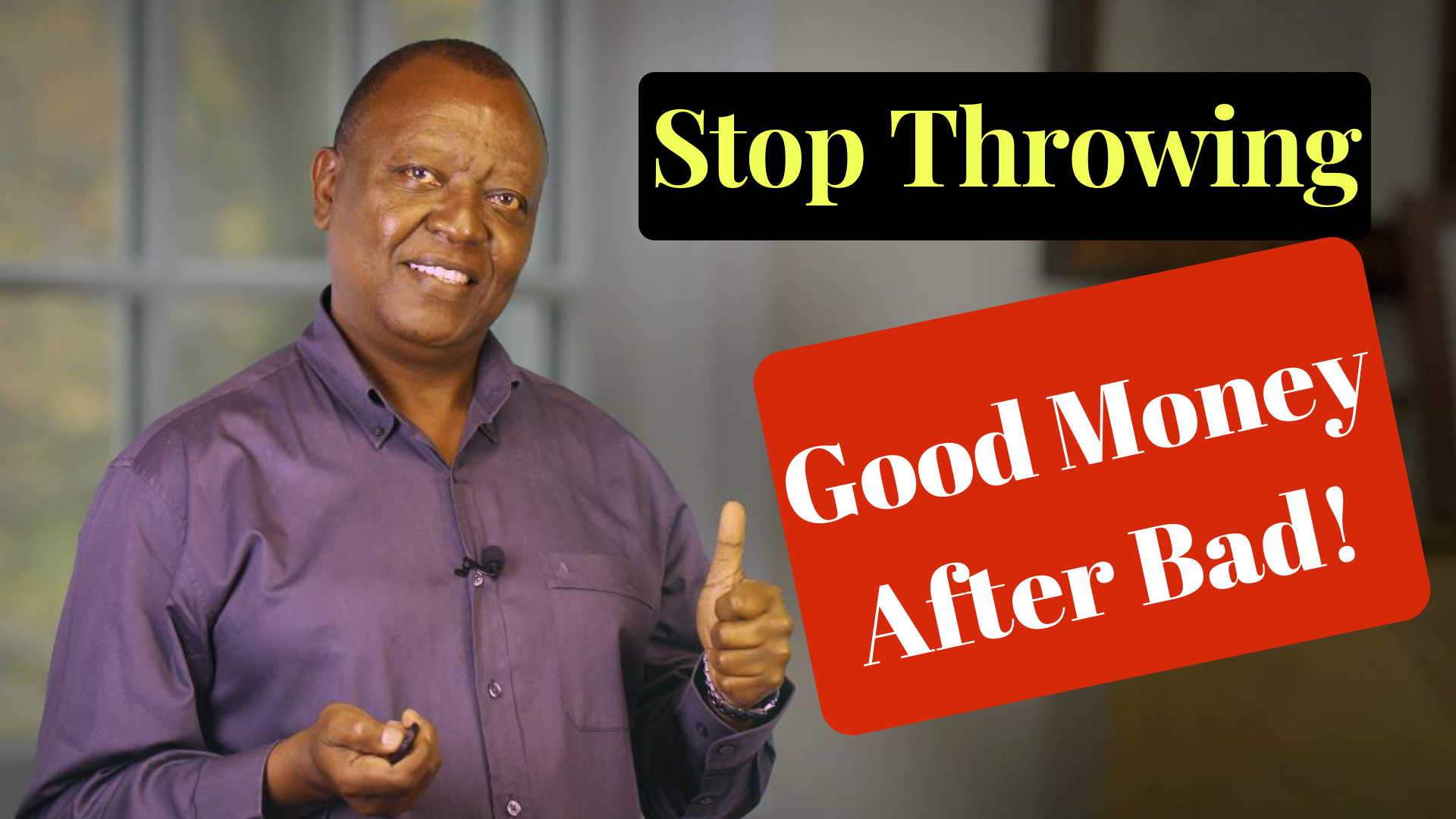Investors, and most often inexperienced investors sometimes get emotionally attached to their projects. When one is emotionally attached to something, they can not make objective judgements about it and, in the case of an investment, they are not able to realize and accept the it when the project becomes doomed to fail. Today, we look at how investors throw good money after bad. Please CLICK HERE to watch on You Tube.
Investors often continue to pump money into doomed projects. They usually reason that if they stop the project they will lose everything they have invested so far. This is irrational because if you continue to invest in a hopeless project, it only means you will eventually lose even more. This fallacy is called the Concord fallacy or the sunk-cost fallacy. The name fallacy came from the joint venture between the British and French governments that developed and build the supersonic aircraft, the Concord. The project was a financial disaster but the two governments would not abandon it, probably fearing the political ramifications. Eventually, production of the loss-making aircraft was stopped after several disastrous crashes.
Many individuals fall victim of the sunk-cost fallacy. Janet is a prime example. Janet took a Sacco loan an invested the money in a boutique in Nairobi. Six months later, her stocks were running low as the high overheads of rent and salaries had swallowed up all the takings. She approached her bank and was advanced some more money with which she re-stocked her shop. Eight months later, she is back in the same position; no stocks, no money. She is now contemplating on selling another plot she owns to restock the boutique. Janet would have been better of if she had cut her losses after six months and accepted that the business is just not viable. Instead she now owes the Sacco, the bank and is about to sell her only remaining appreciating asset, because she cannot bear the thought of losing what she has already invested. Janet would be well served if she followed the advice “don’t throw good money after bad”. Please CLICK HERE to watch on You Tube.
Mental accounting is another strange thing we do with our money. This refers to habit of valuing money according to its source. Even casual observation confirms that most people treat different shillings differently. What did you do with the money you got as a dividend from your Sacco last year, your end year bonus or your income tax refund? I can bet you would not spend your hard-earned salary the same way. People tend to spend such money very casually in ways they would feel very guilty were it their salary or savings. This is irrational because money is money, no matter where it comes from and should not be blown away just because it was unexpected.
The Sacco member would benefit a lot in the long run if they purchased more shares with their dividend rather than spend it frivolously. This is because the shareholding would compound and grow. The member who wastes away their dividends will never have more than their savings in the coop. Since the purchasing power of money diminishes over time due to inflation, such a member is losing in real terms.
Another way in which we let our mental accounting lead us to irrational decisions is by holding on to the history of the asset. Many inheritors of property fall into the trap of treating their inheritance as sacred. No matter that their inheritance does not fit with there needs, they stubbornly refuse to liquidate and use the proceeds to sort out their needs or invest in more appropriate assets. Ironically, this defeats the intended purpose of the inheritance; it was meant to help you and your family live a better life. If selling that inheritance of a farm and investing in Unit trusts better matches your needs, go right ahead and sell. It is irrational to feel guilty about doing so.
Our attitudes towards money can sometime lead us to making decisions that are against our best interests. It is therefore good to be aware of the money mind games we play on ourselves and make sure our actions are rational. Please CLICK HERE to watch on You Tube.
Do you think your mind doesn’t play tricks on you? Then give me the solution to the following; Three men went into a hotel and shared a room for which they were charged three thousand shillings, each paying a thousand shillings. After a while the check in clerk realized that he had overcharged them since the room cost Two thousand five hundred shillings. He called the bellhop and gave him five one hundred shilling notes to refund to the gentlemen. Since the bellhop did not know how to divide five hundred shillings by three, he decided to give the men one hundred shillings each each and keep the balance for himself. The men had therefore paid nine hundred shillings each for a total of two thousand seven hundred shillings. Add the two hundred the bellhop had kept and you get two thousand nine hundred shillings. Where did the other one hundred shillings go? Please write in where you think it went, I want to know what you think!
I hope this helps you realize that you should not throw good money after bad and that you must cut your losses. Please CLICK HERE to watch on You Tube.
